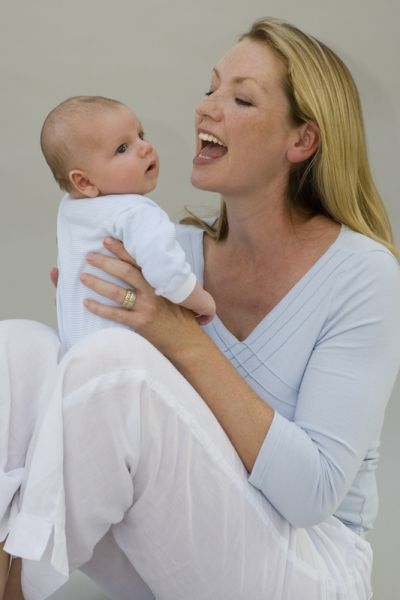Babbling with baby can speed up language development

Babbling with baby can speed up language development
New research suggests that visibly trying to understand what babies are attempting to say may help to speed up the language-learning process.
Researchers at the University of Iowa (UI) and Indiana University have
discovered that that how parents respond to their children's babbling
can actually shape the way infants communicate. According to the
research, when parents act as if they understand baby chatter, the
infants show ‘an increase in developmentally advanced, consonant-vowel
vocalisations.’
The research team says that the findings
challenge the belief that human communication is innate and can't be
influenced by parental feedback. Instead, the researchers argue, parents
who consciously engage with their babbling infants can accelerate their
children's vocalising and language learning.
‘It's not that we found responsiveness matters,’ says Julie
Gros-Louis, assistant professor of psychology at the UI and author of
the study. ‘It's how a mother responds that matters.’
Researchers observed the interactions between 12 mothers and their
eight-month-old infants during free play twice a month over a six-month
period. They noted how the mothers responded to their child's positive
vocalisations, such as babbling and cooing, especially when it was
directed toward the mother.
The team discovered that infants whose mothers responded to what
they thought their babies were saying, showed an increase in
developmentally advanced, consonant-vowel vocalisations. The babies also
began directing more of their babbling over time toward their mothers.
On the other hand, infants whose mothers did not try as much to
understand them and instead directed their infants' attention at times
to something else did not show the same rate of growth in their language
and communication skills.
Medical News Today (MNT) tells us that all participating mothers
completed a survey one month after the study had ceased that detailed
their infants' language development. MNT says, ‘Infants whose mothers
were attentive to their babbling during the study period produced more
words and gestures aged 15 months than infants whose mothers who were
less attentive to their babbling throughout the study.’
The Atlantic magazine concludes, ‘The takeaway of all this is that
how parents speak to their infants may be as important as the frequency
with which they do it.’ This gives us licence, according to the
Atlantic, to go ahead and ‘simply talk to babies like they’re miniature
adults’.
published: 2015-01-23